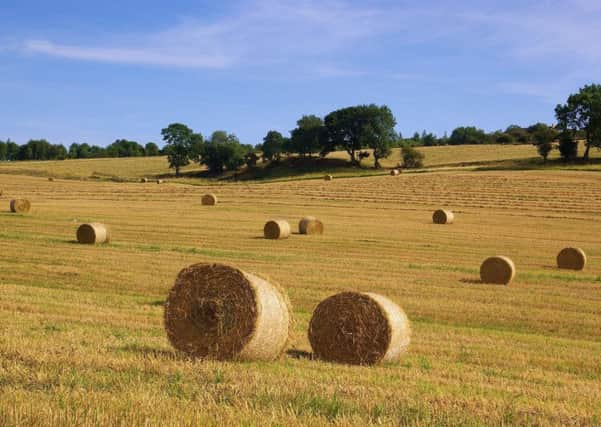Crucial agriculture bill tabled


The formal announcement of the bill came as part of the Queen’s Speech in Westminster this week, and it forms part of a downscaled programme of government set out by the Prime Minister, Theresa May, which heavily focuses on preparing the UK for life outside of the European Union.
In a speech which had wider ramifications for country life, one of the Conservative manifesto pledges that was conspicuous by its absence was plans to make it easier for energy firms to carry out test-drilling for oil and gas, while Downing Street has also made it clear that a fresh vote on fox hunting would not be a priority.
Advertisement
Hide AdAdvertisement
Hide AdNonetheless, farming industry figures welcomed the Agriculture Bill.
Ross Murray, president of the Country Land and Business Association (CLA), said: “Getting Brexit right for farming is of fundamental importance to the rural economy and we welcome the fact it will be subject to detailed scrutiny during the passage of a dedicated Agriculture Bill.
“We will press for this Bill to deliver absolute certainty for farmers that the current system of support will continue funding at current levels for at least five years. This is the vital reassurance that we have campaigned for since the referendum, and will help farmers and rural businesses to make plans for the medium term.”
Prior to the General Election earlier this month, the government promised to continue to match support payments currently received by farmers under the EU’s Common Agricultural Policy (CAP) until 2020.
Advertisement
Hide AdAdvertisement
Hide AdMr Murray added: “The Bill provides an opportunity to improve significantly the extensive and complex administrative systems required to deliver payments for schemes from farm support to environmental stewardship. By providing a forum for detailed debate on the future of farming and our natural environment it is also an opportunity for Parliament to discuss the future direction of policy and we look forward to providing leadership to those discussions.”
Meurig Raymond, president of the National Farmers’ Union, also reacted to the announcement.
“This is a vital time to engage with the farming sector,” said Mr Raymond, who met with new Environment Secretary, Michael Gove, at the end of last weeks for face to face talks.
“Carving out a new future for the farming sector is a huge opportunity for the wealth and wellbeing of the nation. We can further our substantial economic, social and environmental contribution and, with that, strengthen the nation’s ability to feed itself and the world.
Advertisement
Hide AdAdvertisement
Hide Ad“Working closely with the new Secretary of State for Defra and his ministerial team will be essential, and this is already off to a good start. But we’ll also need the support of the whole Parliament if British farming is to have a profitable future in a post-Brexit world.
“This is the right opportunity to embed the long term strategic importance of farming sector for the nation.
“The Repeal Bill will be a long and complex process to lift EU law in UK law. As this work goes on we will be maintaining our core asks of Government to ensure British farming has the right legislative framework in place to support a productive, profitable and progressive food and farming sector.”
Meanwhile, the RSPCA said it was pleased that an attempt to repeal the Hunting Act failed to make it into the Queen’s Speech and that it wanted Ministers to go on to nationalise all existing EU animal welfare legislation without change in the Brexit process.
Advertisement
Hide AdAdvertisement
Hide AdKey legal challenges surrounding agriculture that face the government as it negotiates Brexit were highlighted in a new paper published yesterday by a leading group of barristers, who had a stark warning.
Hugh Mercer QC, chairman of the Bar Council Brexit Working Group, said: “The CAP gives UK producers low tariff access to EU markets so the pressure is on to find a replacement deal or farmers may face tariffs of around 40-50 per cent for their produce under existing WTO (World Trade Organisation) rules, rising to 80 per cent for high value products.”
He also warned of a clash between central government and devolved regions over who will control policy, saying: “The devolved regions may well be in control of their own agriculture policy when we leave the EU, but if regional subsidies diverge from each other there would be considerable distortion in competition that could frustrate international trade deals.”
SECTOR’S RESILIENCE
An analysis by two leading banks suggests the farming sector is showing “considerable resistance” amid economic and political uncertainty.
Advertisement
Hide AdAdvertisement
Hide AdLatest government figures show the total income from farming contracted by 7.5 per cent to £3.96m in 2016.
Clydesdale and Yorkshire Banks said that their lending figures to the agricultural sector had also increased in 2016, by close to 15 per cent.
Brian Colquhoun, head of agriculture at the banks, said: “Farmers have demonstrated genuine entrepreneurial spirit by investing to generate new income streams.”